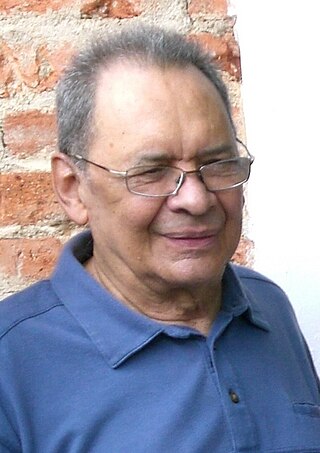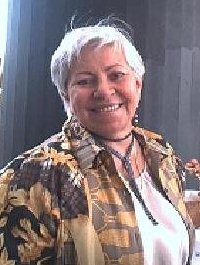Career
He worked in the newspaper El Universal as a packer, later becoming a proof-reader. He had also begun to read English and French which allowed him to work simultaneously as a tourist guide in the Museo de Bellas Artes. He became the correspondent of El Universal in Puerto Cabello and was arrested in 1940 for defamation and slanderous allegations when criticising the Municipal authorities.
He worked in Tropical Radio, had a column in El Universal entitled Punta de lanza (spearhead), and was reporter for the newspaper Últimas Noticias. He collaborated in the weekly magazine El Morrocoy Azul and the newspaper El Nacional . He wrote for the Colombian magazine, Sábado (Saturday) and lived a year in Cuba. In 1945, he became editor of the magazine Fantoches. In 1956, he was expelled from the country by the regime of Marcos Pérez Jiménez, but returned in 1958.
In 1948, Nazoa obtained the Premio Nacional de Periodismo (National Journalism Prize) in the humour and customs section. He was also awarded the Premio Municipal de Literatura del Distrito Federal (Municipal Prize for Literature of the Federal District) in 1967.
He died in an automobile accident between Caracas and Valencia.

Rafael Arráiz Lucca is a Venezuelan essayist, poet, historian and professor.
Gonzalo Parra-Aranguren was a judge at the International Court of Justice in The Hague, Netherlands. He was born in Caracas, Venezuela, and was married to María Trinidad Pulido Santana. He served as a Professor at The Hague Academy of International Law in 1988. He is the author of numerous legal textbooks.
Roberto Fernández Retamar was a Cuban poet, essayist, literary critic and President of the Casa de las Américas. In his role as President of the organization, Fernández also served on the Council of State of Cuba. An early close confidant of Che Guevara and Fidel Castro, he was a central figure in Cuba from the 1959 Revolution until his death in 2019. Fernández also wrote over a dozen major collections of verse and founded the Casa de las Americas cultural magazine.

Miguel Otero Silva, was a Venezuelan writer, journalist, humorist and politician. A figure of great relevance in Venezuelan literature, his literary and journalistic works related strictly to the socio-political history of Venezuela. Throughout his life he was repeatedly forced into exile. Later on, after the establishment of a democratic state in 1958, he was elected to the Venezuelan Senate.

Pedro León Zapata was a prominent Venezuelan artist, humorist and cartoonist.

Fredy Reyna was a Venezuelan musician, arranger and performer, regarded as one of the two masters of the Venezuelan cuatro, which he elevated to the level of a concert instrument, and one of his country's most important cultural figures in the 20th century.
Mariano Díaz Bravo is a Chilean-born Venezuelan photographer, graphic designer and writer, best known for his contributions to the study and promotion of Venezuelan folk art. In 1993, he received the Premio Nacional de Arte Popular "Aquiles Nazoa", Venezuela's highest honor for folk artists and folk art promoters.

In Venezuela, since the opening of the Teatro Caracas and, earlier, the Teatro Maderero, there has been a great lyrical tradition ranging from serious opera to operetta, zarzuela, and Spanish musical reviews.

José Ramón Medina Elorga, was a Venezuelan lawyer, writer, poet and politician.

Edgar C. Otálvora is a Venezuelan intellectual, journalist, and politician who has held government and diplomatic positions. He is an expert in international politics and economics, and has distinguished himself as an analyst of Latin American topics, with a focus on military, diplomatic, and political issues. He has been a columnist in Venezuelans and Americans newspapers, in addition to directing the newspaper El Nuevo Pais in Caracas from 2006 to 2010. He is a professor at the Central University of Venezuela. He was a close collaborator of former Venezuelan president Ramón J. Velásquez. He has cultivated the biographical genre, being the first to write biographies of the 19th century Venezuelan presidents Raimundo Andueza Palacio and Juan Pablo Rojas Paul, as well as the Colombian president Virgilio Barco Vargas. Columnist in Diario Las Américas of Miami.

José Nucete Sardi was a Venezuelan historian, journalist and diplomat. He was born in Mérida and died in Caracas. He was married to Julia Salas Ruiz, daughter of the illustrious intellectual Julio Cesar Salas, with whom he had four daughters.

Isaac José Pardo Soublette, was a Venezuelan intellectual of German-Jewish extraction known for his essays: Esta tierra de gracia (1955) and Fuegos bajo el agua. La invención de la utopía (1983).
Luis Pérez-Oramas is a Venezuelan/American poet, art historian and curator. He is the author of eleven poetry books, seven recollections of essays, and numerous art exhibition catalogs. He has contributed as Op-Ed author to national newspapers in Venezuela as well as to various literary and art magazines in Latin America and Europe.

Barbarito Díez was a Cuban singer who specialized in danzón. He began his career as the singer for Graciano Gómez and Isaac Oviedo's son group, before joining Antonio María Romeu's orchestra. As the lead vocalist for Romeu's ensemble for 20 years, he established himself as one of the main exponents of the sung danzón. He continued singing with his own charanga, as well as other groups, for another 30 years. He also toured and recorded in Venezuela and Puerto Rico before retiring in the early 1990s, when complications from diabetes prevented him from performing and eventually resulted in his death in 1995. A naturally-gifted tenor, he was known for his sense of rhythm, correct diction and romantic style.

Sumito Estévez Singh is a chef, writer, entrepreneur, educator and television personality. He is one of the most recognized Venezuelan chefs in both Venezuela and abroad and one of the most renowned Venezuelans in general. Together with the chef, Héctor Romero, Estevez founded the Instituto Culinario de Caracas, and has interests in commercial establishments in that city as well as abroad.

Marie-José Fauvelle Ripert, best known as Miyó Vestrini was a Venezuelan poet, journalist and scriptwriter.

Tarek William Saab Halabi is a Venezuelan politician, lawyer and poet. He was a leader of the Fifth Republic Movement (MVR) party founded by Hugo Chávez, President of Venezuela, who publicly called him "The Revolution's Poet". He was the Governor of Anzoátegui from 2004 to 2012, and a member of the Committee for Justice and Truth since 2013. In December 2014, he was elected "People's Defender", or Ombudsman, by the National Assembly for 2014–2021 term. Saab was appointed as President of the Republican Moral Council of Venezuela by the People's Power in 2015. On 5 August 2017, the National Constituent Assembly appointed him as Attorney General in substitution of Luisa Ortega Diaz.

Irma Contreras is a former dancer, choreographer, and ballet teacher. She is part of the 1940s generation of Venezuelan dancers. She created and founded the National Ballet of Venezuela with her sister Margot Contreras.

Yolanda Pantin is a Venezuelan author who has mainly written poetry, although she has also worked in children's literature.
















